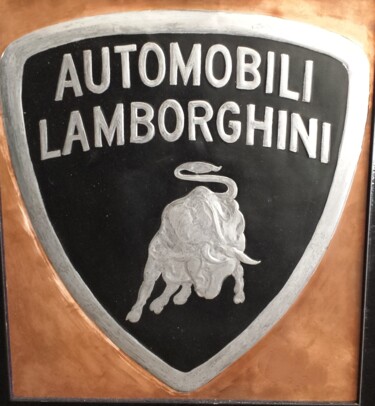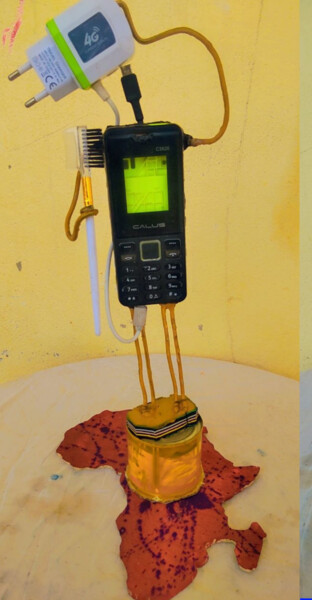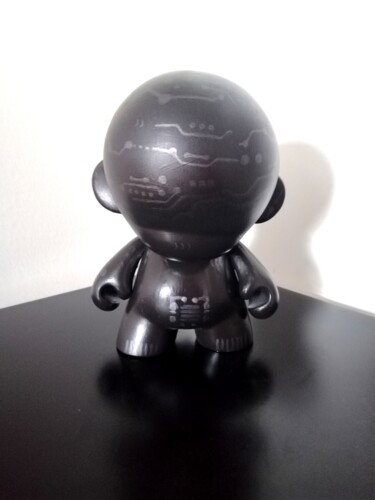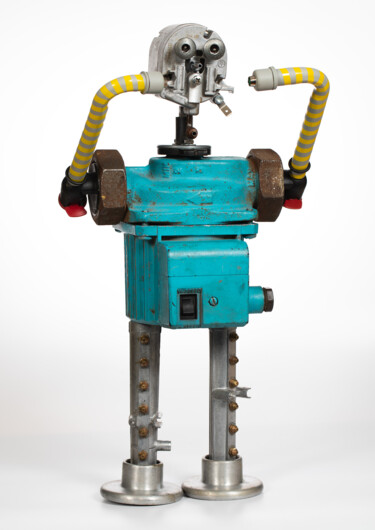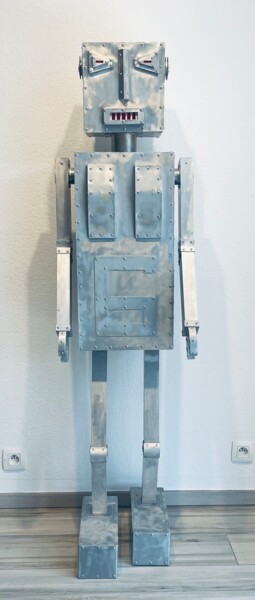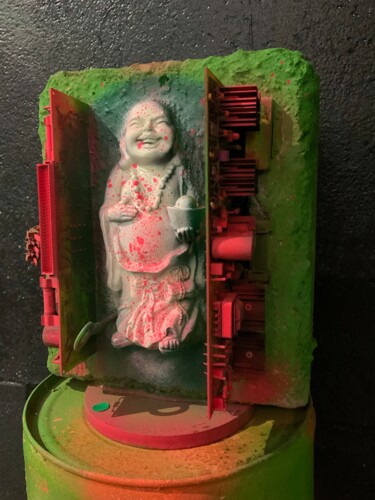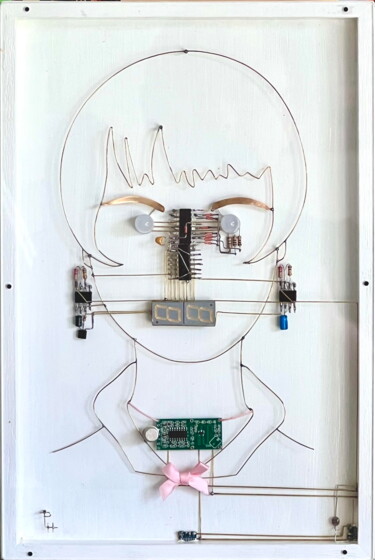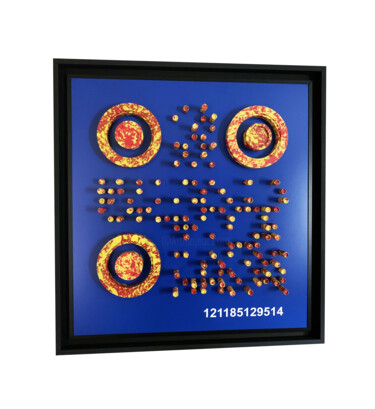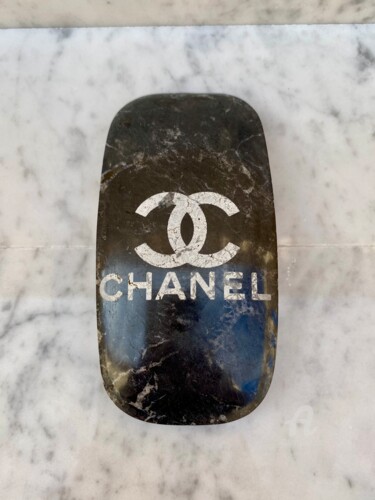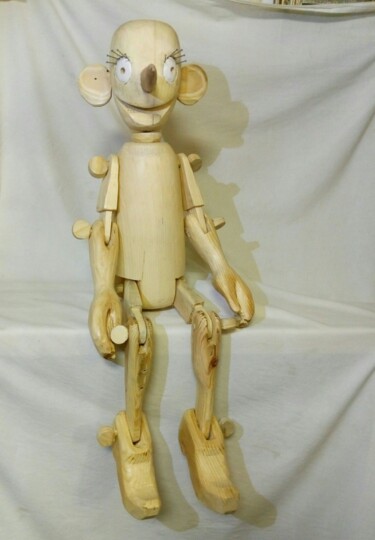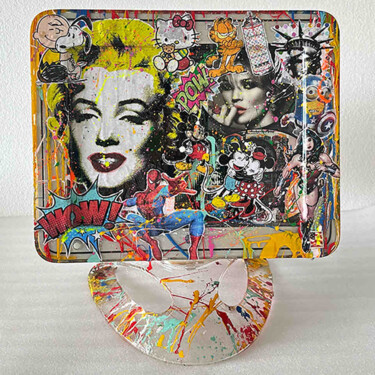
18 Esculturas contemporâneas originais à venda:
Como definir estilo Pop Art ?
Pop Art é um movimento artístico que apareceu pela primeira vez na década de 1950 e atingiu seu pico na década de 1960 na América e na Grã-Bretanha, inspirando-se em fontes da cultura popular e comercial. Começou como uma resposta contra as teorias predominantes sobre arte, cultura e o que a arte deveria ser. Os jovens artistas acreditavam que o que aprendiam na escola de arte e o que observavam nos museus pouco tinham a ver com sua vida cotidiana ou com o ambiente. Em vez disso, eles empregaram imagens de filmes de Hollywood, cultura popular, incluindo histórias em quadrinhos, anúncios, embalagens de produtos e outras mídias comerciais, em uma ruptura impressionante com a técnica artística convencional para produzir pinturas e esculturas que abraçavam a vida cotidiana no sentido mais literal. A Pop Art evoluiu para um dos movimentos de arte contemporânea mais influentes, talvez como resultado da inclusão de imagens comerciais.
Ao usar a iconografia das culturas populares e de massa, o movimento apresentou um desafio às tradições da arte erudita. Através do uso de imagens da cultura popular na arte, na maioria das vezes através do sarcasmo, enfatiza os elementos banais ou básicos de qualquer civilização. Também tem que lidar com os métodos que os artistas empregam para a duplicação ou representação mecânica. Na pop art, os elementos são ocasionalmente claramente isolados, combinados ou removidos de seu contexto usual.
Inúmeras mudanças nas tendências artísticas ocorreram ao longo do tempo e, sempre, obras de arte novas e inovadoras foram produzidas por artistas. Todo esforço criativo homenageia o passado e, ao mesmo tempo, define o caminho para o futuro, inventando novas formas. O movimento Pop Art foi pioneiro na fusão da alta e baixa cultura e criou algumas das obras de arte mais memoráveis do século XX. A pintura e a escultura foram revolucionadas por artistas de toda a Europa, incluindo França, Inglaterra, Itália, Suécia e Estados Unidos, mostrando itens comuns produzidos em massa que nunca haviam sido levados a sério como assunto ou conteúdo para arte.
Entre os artistas mais famosos da Pop Art estão Roy Lichtenstein, Keith Haring, Robert Rauschenberg, Richard Hamilton, Andy Warhol, David Hockney, Robert Indiana, James Rosenquist, Alex Katz e Takashi Murakami.
Escultura Pop Art
O movimento Pop Art tentou obscurecer a distinção entre arte "alta" e cultura "baixa", produzindo pinturas e esculturas de ícones da cultura pop. Um dos aspectos mais influentes da Pop Art é a ideia de que não há hierarquia de culturas e que a arte pode ser emprestada de qualquer fonte. Quem queria comprar Pop Art sabia que materiais menos apreciados substituíram "materiais nobres" como madeira ou bronze e se misturaram a objetos do cotidiano. Isso abriu novas possibilidades para a escultura pop art e levou ao desenvolvimento do que conhecemos hoje.
A escultura LOVE de Robert Indiana é inquestionavelmente a obra de arte mais reconhecida do movimento, assim como as esculturais Brillo de Andy Warhol e as caixas de suco de tomate Campbell's que tão poderosamente abalou o mundo da arte e ultrapassou os limites do que constituía arte, mas outras conquistas, como as esculturas suaves por Claes Oldenburg representando objetos cotidianos com dimensões monumentais, participou muito no desenvolvimento do movimento. Outros escultores como George Segal, Jeff Koons ou mesmo Richard Orlinski também marcarão a história da escultura Pop Art.
escultores de arte pop
Eduardo Paolozzi (1924 - 2005)
Uma figura significativa na vanguarda britânica do pós-guerra foi o escultor e artista escocês Eduardo Paolozzi. Ele é considerado um dos pioneiros da pop art. Sua colagem “I Was a Rich Man's Plaything”, que combinou itens da cultura popular, incluindo uma capa de livro de ficção pulp, um anúncio da Coca-Cola e um pôster de recrutamento militar, serviu como uma peça fundamental do movimento Pop Art. A peça é um excelente exemplo do lado sombrio da Pop Art britânica, que se concentrava mais no contraste entre o brilho e a riqueza da cultura popular americana e a miséria econômica e política da realidade britânica. A influência da tecnologia e da cultura de massa na arte erudita foi destacada por Paolozzi, membro do Independent Group, pouco afiliado. Embora tenha trabalhado em diversos outros meios ao longo de sua carreira e sempre se referisse ao seu trabalho como arte surrealista, ele passou a ter uma ligação mais forte com a escultura.
Claes Oldenburg (1929 - 2022)
O escultor americano Claes Oldenburg é conhecido por suas réplicas em grande escala de objetos do cotidiano que usou em suas instalações de arte pública. Versões de esculturas suaves de objetos do cotidiano é outro tema importante em seu trabalho. Oldenburg é conhecido por criar esculturas humoristicamente ridículas de comida e objetos inanimados. Sua conhecida coleção de tais peças foi exibida pela primeira vez na instalação do artista em 1961 no Lower East Side, em Nova York, chamada "The Store". Oldenburg produziu torta de morango e maçãs cristalizadas como esculturas de gesso para o projeto. A instalação de Oldenburg, que foi montada como uma loja de variedades convencional e vendia seus produtos a baixo custo, além de copiar bens de consumo, fez uma declaração sobre a relação entre objetos de arte e mercadorias. As esculturas de “The Store” foram minuciosamente construídas à mão, apesar de serem apresentadas como se fossem produzidas em massa, e as pinceladas exuberantes e expressivas que cobrem os objetos em Pastry Case parecem parodiar a gravidade do Expressionismo Abstrato, um tema predominante em Arte pop. Em um cenário muito irônico, Oldenburg mistura o item de mercadoria com um gesto expressionista emotivo.
Robert Indiana (1928-2018)
O artista americano Robert Indiana fez parte do movimento pop art. Na forma de um cartão que entregou a vários amigos e conhecidos no mundo da arte, ele inicialmente desenvolveu sua imagem icônica LOVE em 1964. Robert Indiana foi convidado a criar uma obra de arte para o cartão de Natal anual do Museu de Arte Moderna em 1965. Baseado em sua imagem LOVE, Indiana apresentou três variantes quadradas de óleo sobre tela de 12 ". Vermelho, azul e verde foram escolhidos pelo museu como sendo as combinações de cores mais poderosas. Ele rapidamente alcançou o topo dos cartões mais populares que o museu já produziu Em 1966, Indiana colaborou com Marian Goodman of Multiples, Inc. para criar sua primeira escultura LOVE em alumínio enquanto ele continuava a construir sua série LOVE. Indiana terminou sua primeira enorme escultura LOVE em aço Cor-Ten em 1970.
George Segal (1924-2000)
O pintor e escultor americano George Segal fez parte do movimento pop art. Apesar de ter começado sua carreira artística como pintor, Segal é mais conhecido por suas figuras em tamanho real e pelos quadros em que apareciam. no lugar dos métodos convencionais de fundição.
Marisol (1930 - 2016)
Enquanto os homens dominavam a Pop Art americana, algumas mulheres, entre elas Marisol, participavam de exposições ao lado deles. No entanto, suas criações nem sempre aderiram à rígida iconografia do Pop. Suas esculturas inertes e espirituosas que fazem referência espirituosa à moda, família e estrelas de cinema são mais reconhecidas por fundir arte popular e montagem.
Jasper Johns (nascido em 1930)
Um dos artistas vivos mais famosos do mundo é Jasper Johns. Quase todos os movimentos artísticos da década de 1950 até o presente foram influenciados por seu trabalho em pintura, escultura e gravura, incluindo o Expressionismo Abstrato, Neo Dada e o movimento Pop Art. Johns foi um dos artistas que ajudou o movimento Pop Art a abraçar a sociedade de consumo. Suas peças de Pop Art apresentam principalmente sinais como bandeiras, alvos e mapas. Na verdade, a pintura Bandeira, uma das peças mais reconhecidas do movimento Pop Art, é sua criação mais conhecida. Acredita-se que ele conseguiu depois de ver a bandeira americana em um sonho. Suas criações recebem constantemente milhões de dólares em leilões e vendas, e frequentemente estabelecem recordes pela maior quantia já paga por uma obra de um artista vivo.
Jeff Koons (nascido em 1955)
O artista americano Jeff Koons é conhecido por suas obras que tratam da cultura popular e por suas esculturas que apresentam objetos do cotidiano, como balões de animais feitos de aço inoxidável com superfícies espelhadas. Suas esculturas ganharam preços altos, com pelo menos duas delas batendo recordes em leilões de obras de artistas vivos: Balloon Dog (Orange), em 2013, vendida por US$ 58,4 milhões, e Rabbit, em 2019, por US$ 91,1 milhões.
Keith Haring (1958 - 1990)
A arte pop do artista americano Keith Haring emergiu da cena do graffiti de Nova York dos anos 1980. Sua estética animada tornou-se uma linguagem visual bem conhecida. Uma grande parte de sua arte contém alusões sexuais que foram transformadas em ação social usando as imagens para promover a conscientização sobre a AIDS e o sexo seguro. A reputação de Haring aumentou como resultado de seus desenhos espontâneos de giz de pessoas, cachorros e outros motivos estilizados em anúncios pretos nus nos metrôs de Nova York. Depois de se tornar conhecido, ele produziu murais vibrantes em grande escala, vários dos quais foram encomendados. Entre 1982 e 1989, realizou mais de 50 obras públicas, muitas delas gratuitas para hospitais, creches e escolas. Ele expandiu sua prática abrindo a Pop Shop em 1986. Por meio de sua própria iconografia, seu trabalho posterior frequentemente expressava temas políticos e sociológicos - anti-crack, anti-apartheid, sexo seguro, homossexualidade e AIDS.
Discover contemporary artworks on Artmajeur
Contemporary art is a vibrant constellation of artistic expressions. This creative universe encompasses a wide array of mediums, from paintings, sculpture, and photography to drawing, printmaking, textile art, and digital art, each medium a star shining with its own distinct radiance. Artists use diverse supports and materials to bring their visions to life, such as canvas, wood, metal, and even innovative digital canvases for the creation of virtual masterpieces.
A contemporary painting, for instance, may weave its story through the masterful strokes of acrylic or oil, while a contemporary sculpture might sing its song in the language of stone, bronze, or found objects. The photographic arts capture and manipulate light to produce striking images, while printmaking employs techniques like lithography and screen-printing to produce multiples of a single, impactful image. Textile art plays with fabrics and fibers, whereas digital art pushes the boundaries of creation with innovative technology.
The allure of contemporary art lies in its boundary-pushing nature, its relentless quest for experimentation and its constant reflection of the evolving human experience. This boundless creativity, coupled with its strong social and personal commentary, makes every piece of contemporary art a unique emblem of its time, a mirror held up to the realities and dreams of our complex world. It whispers to us, moves us, provokes thought, and kindles a deep emotional response, stirring the soul of anyone willing to listen. It is, indeed, the language of emotions and ideas, spoken in the dialect of our era.

©2023 Gardani
Origins and history of contemporary art
The story of contemporary art unfolds in the mid-20th century, marked by seismic shifts in artistic expression. Post-World War II, around the 1950s and 1960s, artists began experimenting beyond traditional confines, challenging the norms of what art could be. This revolutionary epoch birthed myriad new movements and artistic forms such as abstract expressionism, pop art, and minimalism. Paintings, once confined by realism, embraced abstraction, as artists used color and form to express emotions and ideas. Notable periods like the advent of pop art in the late 1950s and early 1960s saw artworks mimicking popular culture and mass media, reflecting society’s shifting focus.
The sculptural arts, too, witnessed a metamorphosis. Sculptors started to experiment with new materials and forms, often creating artworks that interacted with the viewer and the surrounding space, fostering a sense of engagement. Drawing, a timeless practice, also evolved, with artists incorporating innovative techniques and concepts to redefine its role in contemporary art.
Photography, a relatively new medium, emerged as a powerful tool in the contemporary art landscape. Born in the 19th century, it truly came into its own in the latter half of the 20th century, blurring the lines between fine art and documentation. Printmaking, a practice dating back to ancient times, saw renewed interest and experimentation with techniques like lithography, etching, and screen printing gaining prominence.
The realm of textile art expanded dramatically, as artists began to appreciate the versatility and tactile quality of fabric and fibers. Artists began using textiles to challenge the boundaries between fine art, craft, and design.
The dawn of digital technology in the late 20th century heralded a new age for contemporary art. Digital art emerged as artists started leveraging new technologies to create immersive, interactive experiences, often blurring the line between the virtual and the physical world.
Through these transformative periods, the essence of contemporary art has remained the same: a dynamic, evolving reflection of the times we live in, continually pushing boundaries and embracing the new, always questioning, always exploring.
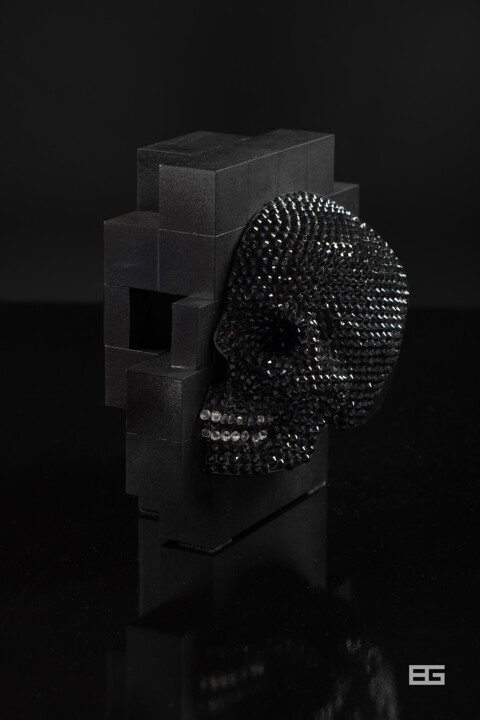
©2022 Bertrand Gregoire
Evolutions of theses contemporary works in the art market
As we navigate through the 21st century, the dynamic landscape of contemporary art continues to evolve and expand, reflecting our ever-changing world. Contemporary paintings, once primarily confined to two-dimensional canvases, now embrace a multitude of forms and techniques, ranging from mixed media installations to digital creations, each piece a rich a weaving of thoughts, emotions, and narratives. Sculpture, too, has ventured far beyond traditional stone and bronze, with artists incorporating light, sound, and even motion, embodying the ephemerality and flux of the modern world.
Photography, in the hands of contemporary artists, has expanded its horizons, seamlessly blending with digital technology to create breathtaking imagery that challenges our perception of reality. Drawing, as well, has transcended the borders of paper, incorporating multimedia elements and exploratory techniques to redefine its role in the artistic discourse. Printmaking continues to flourish, with contemporary artists using traditional methods in innovative ways to deliver potent social and personal commentaries.
Textile art, once considered a craft, now holds a prominent place in the contemporary art world, with artists using it to explore issues of identity, tradition, and cultural heritage. Meanwhile, digital art, the newest member of the contemporary art family, has revolutionized the way we create and interact with art, presenting immersive experiences that blur the boundary between the virtual and the physical.
These diverse forms of contemporary art hold significant value in the current art market, not only due to their aesthetic appeal but also their ability to encapsulate and communicate complex ideas and emotions. Collectors, curators, and art lovers worldwide seek these works, drawn to their inherent dynamism, their innovative use of materials, and their eloquent expressions of our shared human experience. As a testimonial to our times, these contemporary artworks encapsulate the pulse of our society and the resonance of individual voices, forever etching our collective narrative into the annals of art history.
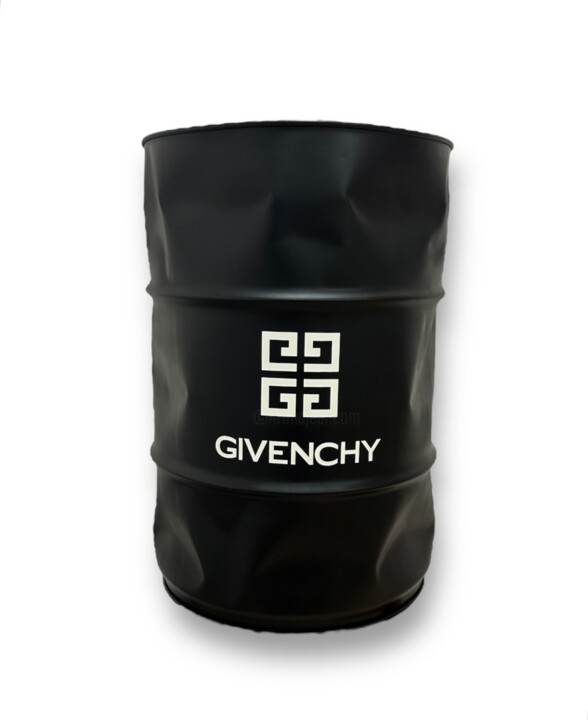
©2013 Walid Sahraoui (Wally)
Famous Contemporary Artists
As we delve into the vibrant realm of contemporary art, we encounter an array of artists who shape this dynamic field. Each a master in their medium - painting, sculpture, photography, drawing, printmaking, textile, or digital art - they push artistic boundaries, reflecting our era and challenging perceptions. Let’s explore these remarkable contributors and their groundbreaking works.
1. Gerhard Richter - Known for his multi-faceted approach to painting, Richter challenges the boundaries of the medium, masterfully oscillating between abstract and photorealistic styles. His works, whether featuring squeegee-pulled pigments or blurred photographic images, engage in a fascinating dialogue with perception.
2. Jeff Koons - A significant figure in contemporary sculpture, Koons crafts monumental pieces that explore themes of consumerism, taste, and popular culture. His iconic balloon animals, constructed in mirror-polished stainless steel, captivate with their playful yet profound commentary.
3. Cindy Sherman - An acclaimed photographer, Sherman uses her lens to explore identity and societal roles, particularly of women. Renowned for her conceptual self-portraits, she assumes myriad characters, pushing the boundaries of photography as a medium of artistic expression.
4. David Hockney - Hockney, with his prolific output spanning six decades, is a pivotal figure in contemporary drawing. His bold use of color and playful exploration of perspective convey an intoxicating sense of joy and an unabashed celebration of life.
5. Kiki Smith - An innovative printmaker, Smith’s work explores the human condition, particularly the female body and its social and cultural connotations. Her etchings and lithographs speak to universal experiences of life, death, and transformation.
6. El Anatsui - A master of textile art, Anatsui creates stunning tapestry-like installations from discarded bottle caps and aluminum scraps. These shimmering, flexible sculptures blend traditional African aesthetic with contemporary art sensibilities, speaking to themes of consumption, waste, and the interconnectedness of our world.
7. Rafael Lozano-Hemmer - A leading figure in digital art, Lozano-Hemmer utilizes technology to create interactive installations that blend architecture and performance art. His work, often participatory in nature, explores themes of surveillance, privacy, and the relationship between people and their environments.
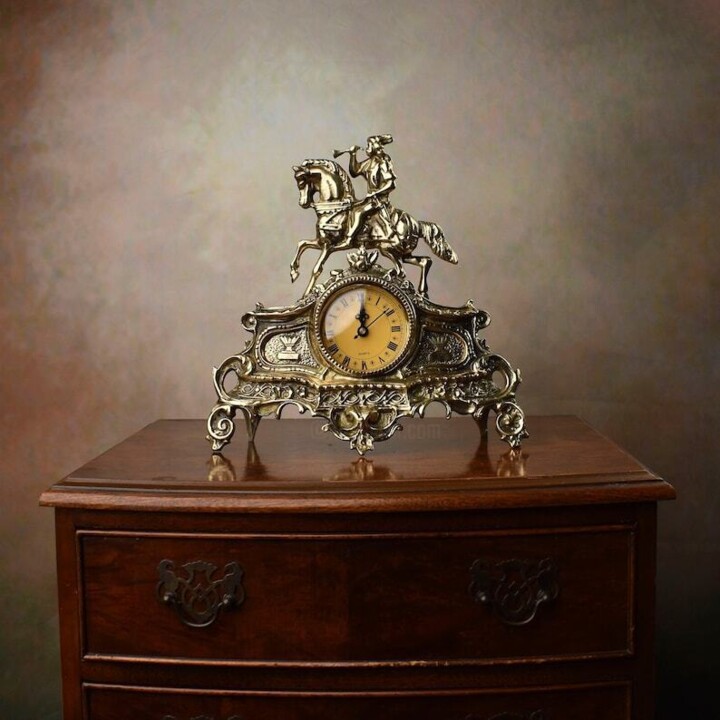
©2023 Djamel Eddine Hafis
Notable contemporary artworks
The contemporary art landscape is a dynamic patchwork of diverse expressions and groundbreaking ideas, each artwork a unique dialog with its audience. Here are a selection of some renowned contemporary artworks, spanning various media such as painting, sculpture, photography, drawing, printmaking, textile art, and digital art, that have profoundly influenced this vibrant movement.
"Cloud Gate" by Anish Kapoor, 2006 - This monumental stainless steel sculpture, also known as "The Bean," mirrors and distorts the Chicago skyline and onlookers in its seamless, liquid-like surface, creating an interactive experience that blurs the line between the artwork and the viewer.
"Marilyn Diptych" by Andy Warhol, 1962 - An iconic piece of pop art, this silkscreen painting features fifty images of Marilyn Monroe. Half brightly colored, half in black and white, it reflects the dichotomy of celebrity life and its influence on popular culture.
"Rhein II" by Andreas Gursky, 1999 - This photographic artwork, a digitally-altered image of the Rhine River, is celebrated for its minimalist aesthetic. It strips the landscape to its bare essentials, invoking a sense of tranquility and vastness.
"Black Square" by Kazimir Malevich, 1915 - A revolutionary painting in the realm of abstract art, this piece, featuring nothing more than a black square on a white field, challenges traditional notions of representation, symbolizing a new era in artistic expression.
"Puppy" by Jeff Koons, 1992 - This giant sculpture, a West Highland Terrier blanketed in flowering plants, explores themes of innocence, consumer culture, and the interplay between high art and kitsch. It’s a delightful blend of traditional sculpture and garden craft.
"Re-projection: Hoerengracht" by Ed and Nancy Kienholz, 1983-1988 - A room-sized tableau representing Amsterdam’s red-light district, this work combines elements of sculpture, painting, lighting, and found objects. It engages viewers in a stark commentary on commodification and objectification.
"Untitled" (Your body is a battleground) by Barbara Kruger, 1989 - This photomontage, combining black-and-white photography with impactful text, explores issues of feminism, identity, and power. Its potent, confrontational message is a prime example of the power of text in contemporary visual art.
"For the Love of God" by Damien Hirst, 2007 - This sculpture, a platinum cast of a human skull encrusted with 8,601 diamonds, probes themes of mortality, value, and the human fascination with luxury and decadence. It’s a compelling blend of macabre and magnificence.
"Physical impossibility of Death in the Mind of Someone Living" by Damien Hirst, 1991 - This artwork, featuring a tiger shark preserved in formaldehyde, blurs the line between traditional sculpture and biological specimen. It prompts viewers to contemplate mortality and nature’s ferocity.
"One and Three Chairs" by Joseph Kosuth, 1965 - A piece of conceptual art, it presents a physical chair, a photograph of a chair, and a dictionary definition of a chair, thus exploring the relationship between language, picture, and referent in art.
These pieces, in their diversity, exemplify the rich tapestry of contemporary art, each piece a unique commentary on our world and a testament to the limitless potential of creative expression.

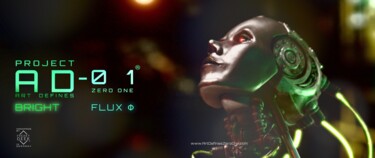
Freaky-Deek
Escultura - Moldagem | 7x6 in
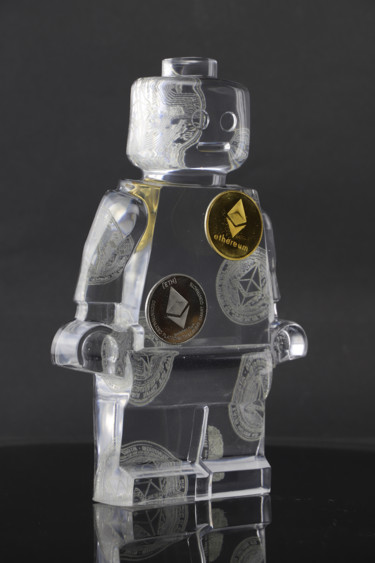
Vincent Sabatier (VerSus)
Escultura - Resina | 9,8x6,3 in
